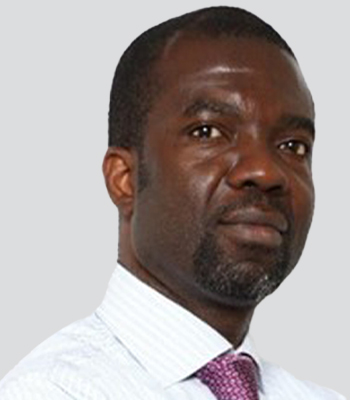Black History Month: MRU’s Amos Nkrumah

Most Canadians don’t realize the challenges immigrants often face when it comes to being recognized for the work they have done in their origin countries, to become recognized as professional in their fields.
Dr. Amos Nkrumah, PhD, has considered this issue, as well as other aspects of the immigrant experience that can negatively affect their settlement in their new homes.
The assistant professor of sociology is currently in the midst of a seven-year project to examine the challenges faced by Sub-Saharan African immigrants and refugees (or SSAIs), funded through the Social Sciences and Humanities Research Council (SSHRC).
The project’s title is "I Am Because We Are - Amplifying Sub-Saharan African Immigrants' Resilience and Ability to Thrive," and focuses on the rapid growth of Canada's SSAI population, a group of immigrants from many countries who made up 13 per cent of Canada’s immigrant population in 2016. Nkrumah’s work focuses on the immigrant experience, resilience, systemic barriers, and investigates opportunities for improvement.
An immigrant himself (from Ghana), Nkrumah has been in Canada for 15 years and at MRU since 2022. He currently teaches a course called Sociology of African Canadians, which explores the social dynamics, experiences, and contributions of individuals of Black African descent within Canadian society.
How many SSAI's are in Canada and why are they choosing to come here?
“Percentage-wise, according to Statistics Canada, Canada's SSAI population grew, from just 1.9 per cent of newcomers in 1971 to 13 per cent in 2016. Reasons for choosing Canada are political/civil conflicts and human rights issues, better opportunities and education.”
How are we failing our new (Black) Canadians?
“SSAI populations are poorly understood and underserved by mainstream immigrant settlement and integration services in terms of their cultural worldviews, social hierarchies and patterns of male-female coupled with anti-Black racism and discrimination.”
Can you describe a ‘breakthrough’ moment in your class?
“One such breakthrough moment was a discussion about the lived experiences of Black immigrants in the Canadian labour market, specifically on the lack of recognition credentials that make qualified professionals jobless. The discussion resonated with the class, making them think about a solution to the challenge.
“One example is language, particularly immigrants from English West African countries colonized by Britain where English is the official language and mode in their education system. These immigrants are made to undergo credential evaluation, which takes months or years before approval. In most cases, they are made to write additional language tests before employment even though they have completed their masters and PhDs.”
What is something Canadian students are surprised about when you tell them?
Most Canadians do not know about Black people, such as the rich history of formal education (the University of Timbuktu, one of the oldest in the world that trained scholars in the medieval period in West Africa ) and culture (the Asante Kingdom).
For example, the University of Timbuktu is one of the world's oldest and most prestigious universities and was established under the emperor Mansa Musa in the 13th and 14th centuries. It is currently located in the centre of modern-day Mali in the Saharan desert and has contributed majorly to the modern understanding of history and culture in Medieval Sub-Saharan Africa and various fields such as astronomy, mathematics, theology, law, literature and medicine. A notable feature was its extensive library collections, which housed numerous manuscripts on various subjects since the Library of Alexandria. It experienced a decline in influence after the fall of the Mali Empire and faced challenges from colonialism and later periods of instability, however, efforts have recently been made under the UN (UNESCO) to preserve the University's legacy and restore its status as a centre of learning and cultural heritage.
The Asante Kingdom was one of the most powerful pre-colonial states (now in modern Ghana) in West Africa. It peaked during the 18th and 19th centuries through its control of lucrative gold trade routes, sophisticated bureaucracy, military prowess and rich cultural heritage, including traditional festivals such as Akwasidae and the vibrant Kente cloth-weaving industry.
The Asante Kingdom's military power was evident when they defeated British forces in the First Anglo-Ashanti War in 1824, when Britain attempted to colonize. Sir Charles McCarthy, the British governor during the time, died during the war.
Ghana is now a republic with a democratic government, and traditional chieftaincy systems, including the Asante Kingdom, continue to play a role in the country's cultural and social fabric. The Asantehene, or king of the Ashanti people, remains an important figurehead, representing the traditional authority and cultural identity of the Asante people and Ghanaians in general.

